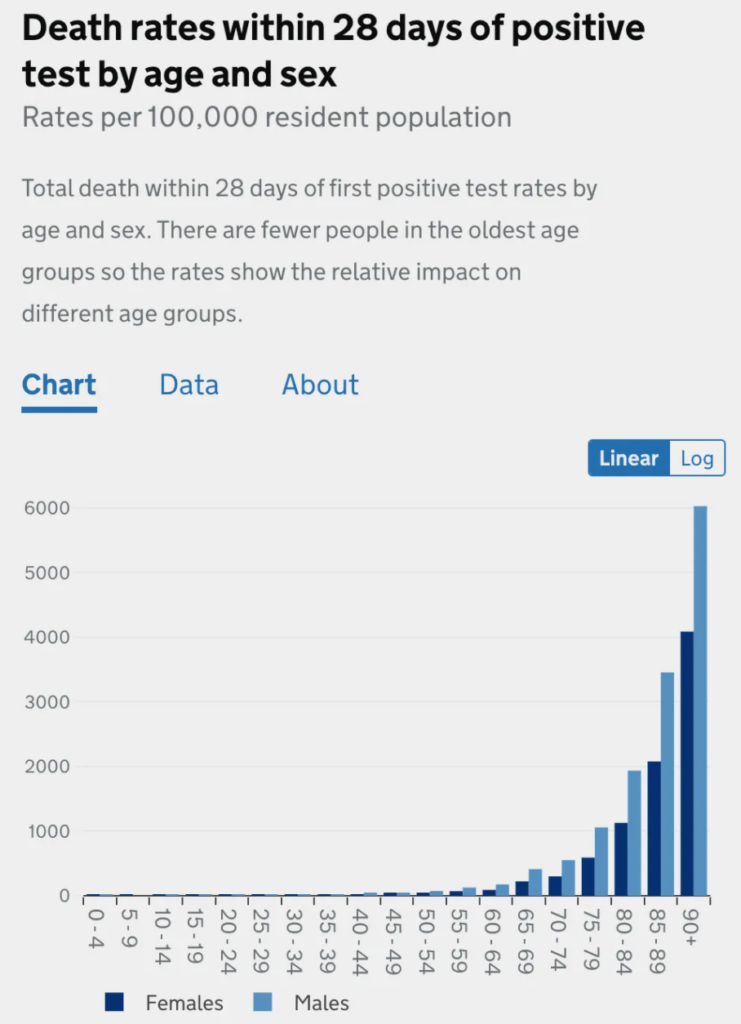Pathology
A paper last week said that the risk of heart inflammation in young men was one in a thousand. As this article reports, they were waaaaaay off in their count of the total number of vaccinations in Ontario; the correct figure turns out to be one in 1 in 25,000. I can’t for the life of me figure out how they managed to get it so terribly wrong. Maybe they were using imperial units instead of metric.
(That last sentence was a joke.)
In this study, they stuck a scope down to COVID-19 patient’s alveoli and sampled the biota there. They found that higher levels of SARS-CoV-2, lower levels of SARS-CoV-2 antibodies, and a gene expression that was low in IgG and IgA were the best predictors of mortality. In other words, the problem is SARS-CoV-2, not some opportunistic infection.
This study in Turkey looked at antibodies in kids’ blood after getting COVID-19 infections. They found that the antibodies could still clear the virus in test tubes after six months, but that the amount was about a third what it was right after infection.
This preprint says life expectancy declined in almost all the countries they looked at. Only women in Finland and everyone in Denmark did not have a loss. (Canada, alas, was not examined. Hmmpf!)

Many European countries had not seen losses so large since WW2. Men and women in the US lost around 1.5 years.
Mitigation Measures
This study put portable air filters/sanitizers into a surge COVID-19 ward and a surge COVID-19 ICU, and saw a big drop in not just SARS-CoV-2 but about fifty(!!!) other pathogens.
Vaccines
I have said before that while there are people for whom the vaccine doesn’t work well, there is almost nobody who cannot get a vaccine safely. People who are allergic to components in a vaccine can get a different vaccine and/or take allergy-reducing drugs. Young men are at a slight risk for heart inflammation, but a) they are at more risk from heart problems from COVID-19 and b) it’s usually mild. (NB: according to this document from UWaterloo, if you get heart inflammation with your first dose, you should not get a second shot.) Young people are at some risk from clots from Vaxzevria and J&J’s vaccine, but the risk is very rare, well understood, and easily treated.
Well, there is a group which can have an significantly adverse reaction to a vaccine shot: people with Long COVID. The shot can make Long COVID worse, as this article reports (and which I had heard before).
The tricky thing is that vaccination also frequently makes Long COVID better. They don’t know why it sometimes makes symptoms better and sometimes worse.
In addition, people with Long COVID clearly have already had COVID-19. So should people with Long COVID be excused from vaccine mandates? That’s a tricky question and I don’t have the answer.
Treatments
This article says that Pfizer is starting a Ph3 trial for a pill for preventing COVID-19. Pfizer is also testing the pill as a treatment.
Long COVID
This preprint found HIV in the Cerebral Spinal Fluid of even after aggressive anti-retroviral therapy and undetectable levels in the blood. HIV hides in the brain, basically. This makes me think that perhaps SARS-CoV-2 could hide in the brain, too, causing Long COVID despite testing negative.
Recommended Reading
This article is about a guy who convinces parents to vaccinate their kids, and how he does it.
This article says that most people don’t really grasp just how badly age-skewed COVID-19 risk is: “a vaccinated 80-year-old has about the same mortality risk as an unvaccinated 50-year-old”; unvaccinated children are safer from COVID-19 death than vaccinated adults of any age.”

